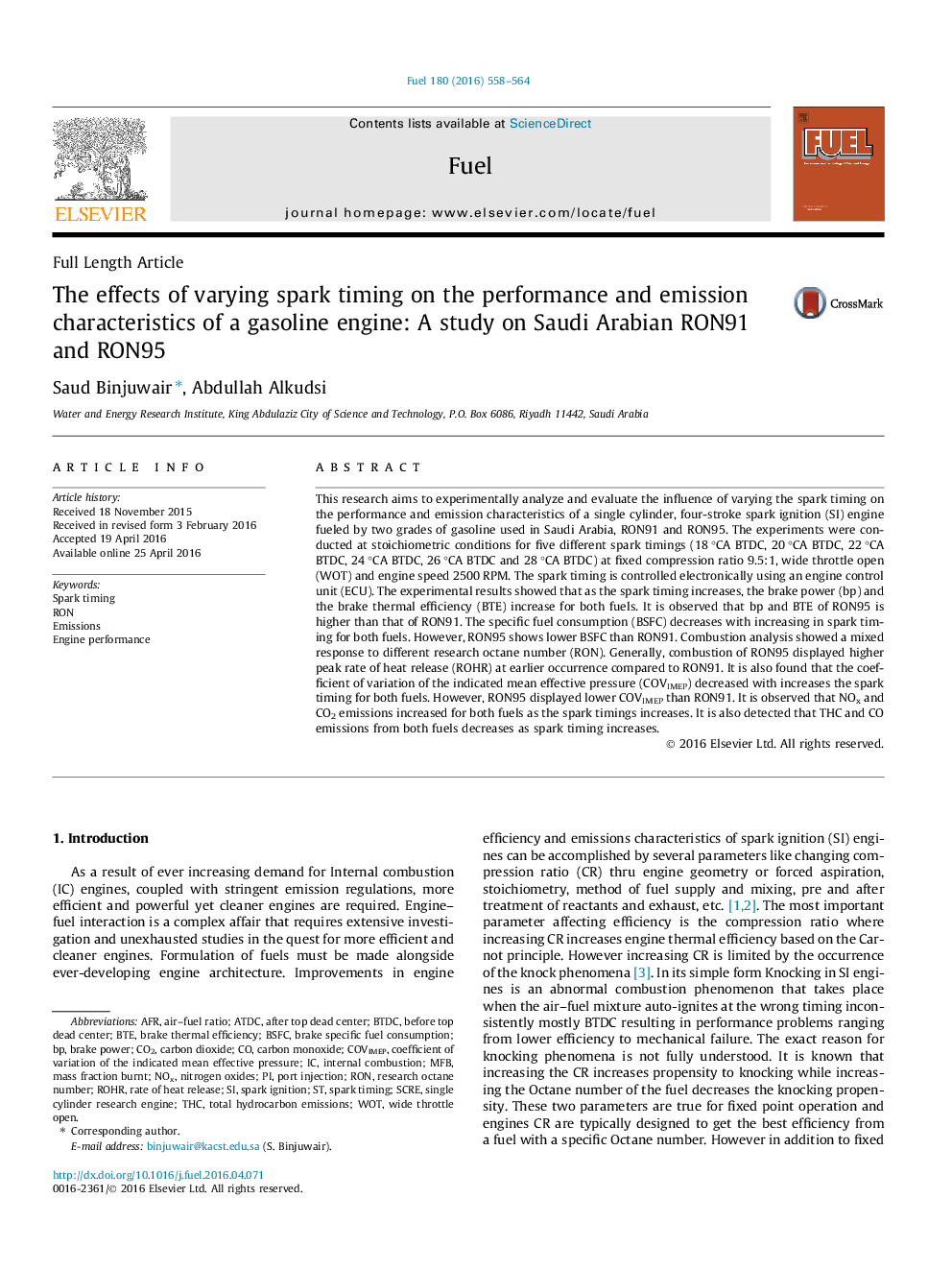| Article ID | Journal | Published Year | Pages | File Type |
|---|---|---|---|---|
| 6633836 | Fuel | 2016 | 7 Pages |
Abstract
This research aims to experimentally analyze and evaluate the influence of varying the spark timing on the performance and emission characteristics of a single cylinder, four-stroke spark ignition (SI) engine fueled by two grades of gasoline used in Saudi Arabia, RON91 and RON95. The experiments were conducted at stoichiometric conditions for five different spark timings (18 °CA BTDC, 20 °CA BTDC, 22 °CA BTDC, 24 °CA BTDC, 26 °CA BTDC and 28 °CA BTDC) at fixed compression ratio 9.5:1, wide throttle open (WOT) and engine speed 2500 RPM. The spark timing is controlled electronically using an engine control unit (ECU). The experimental results showed that as the spark timing increases, the brake power (bp) and the brake thermal efficiency (BTE) increase for both fuels. It is observed that bp and BTE of RON95 is higher than that of RON91. The specific fuel consumption (BSFC) decreases with increasing in spark timing for both fuels. However, RON95 shows lower BSFC than RON91. Combustion analysis showed a mixed response to different research octane number (RON). Generally, combustion of RON95 displayed higher peak rate of heat release (ROHR) at earlier occurrence compared to RON91. It is also found that the coefficient of variation of the indicated mean effective pressure (COVIMEP) decreased with increases the spark timing for both fuels. However, RON95 displayed lower COVIMEP than RON91. It is observed that NOx and CO2 emissions increased for both fuels as the spark timings increases. It is also detected that THC and CO emissions from both fuels decreases as spark timing increases.
Keywords
air–fuel ratioCOVimepWOTMFBaTDCAFRBSFCTHCbTDCNOxinternal combustionEmissionsResearch Octane NumberNitrogen oxidesafter top dead centerbrake specific fuel consumptionPort injectionspark ignitionCarbon dioxideBrake thermal efficiencyRONRoHRSpark timingEngine performancebefore top dead centerBrake powercarbon monoxideRate of heat releaseBTECO2mass fraction burnt
Related Topics
Physical Sciences and Engineering
Chemical Engineering
Chemical Engineering (General)
Authors
Saud Binjuwair, Abdullah Alkudsi,
